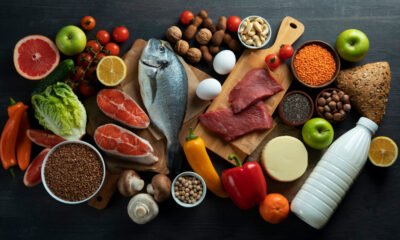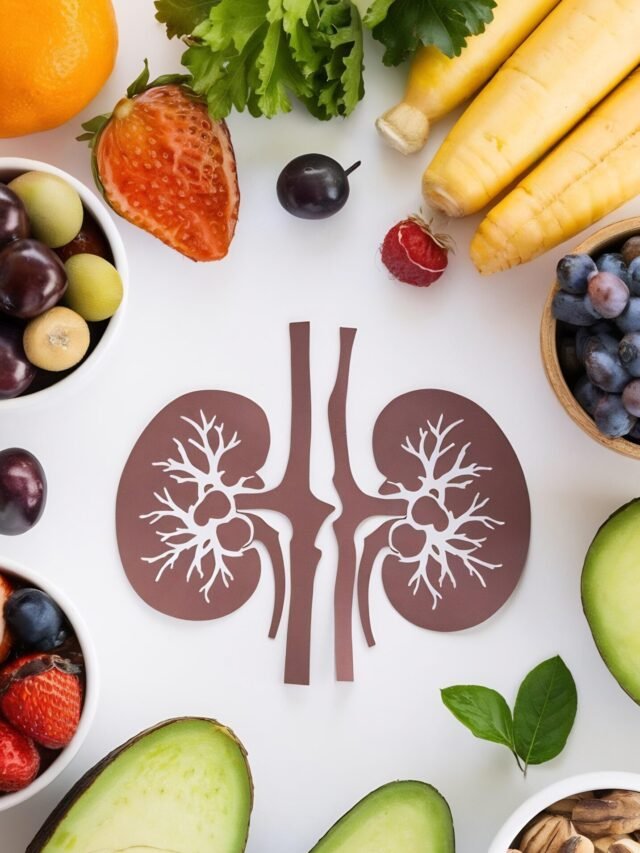Health
Top Nutrients to Improve Your Child’s Eyesight: Essential Diet Tips
 Maintaining your child’s eye health starts with a well-balanced diet. Proper nutrition plays a key role in ensuring the eyes receive the vitamins and minerals needed for optimal function and development. By incorporating the right nutrients, you can help protect and improve Your Child’s Eyesight and support their overall visual health.
Maintaining your child’s eye health starts with a well-balanced diet. Proper nutrition plays a key role in ensuring the eyes receive the vitamins and minerals needed for optimal function and development. By incorporating the right nutrients, you can help protect and improve Your Child’s Eyesight and support their overall visual health.
Research shows that deficiencies in vital nutrients like Vitamin A, C, E, Omega-3 fatty acids, zinc, lutein, and zeaxanthin can lead to eye issues in children. To prevent these problems, it’s crucial to include nutrient-rich foods that promote eye development.
Monkeypox Symptoms: Dos and Don’ts if You Are Diagnosed with This Viral Disease
Dr. Arnav Singh Saroya, a Corneal and Refractive Surgeon at Dr. Agarwals Eye Hospital in Chennai, emphasizes the importance of nutrition for eye health. “While people often prioritize the heart or brain, eye health should not be overlooked. Damaged eye cells do not regenerate, making it essential to nurture visual development from a young age.” He highlights the following nutrients that are vital for children’s eye care:
- Vitamin A: Essential for the health of the retina, cornea, and conjunctiva, Vitamin A helps regulate light-sensitive cells in the retina, allowing for better vision in low-light conditions. Deficiency can lead to night blindness and severe eye diseases. Foods like sweet potatoes, carrots, and dark leafy greens are excellent sources.
- Omega-3 Fatty Acids: Particularly DHA and EPA, these fatty acids are critical for retina function and photoreceptor health, while also promoting the optic nerve’s wellbeing. Incorporate fatty fish, walnuts, and chia seeds into your child’s meals for a healthy intake of Omega-3.
- Vitamin C: This powerful antioxidant protects the eyes from oxidative damage and inflammation while maintaining the health of blood vessels in the retina. Vitamin C-rich foods such as bell peppers, strawberries, and citrus fruits are great additions to your child’s diet.
R Madhavan’s Weight Loss Secrets: Intermittent Fasting and Plenty of Fluids
- Vitamin E: Another strong antioxidant, Vitamin E works in synergy with Vitamin C to protect the retina from free radicals and can help prevent age-related vision loss. Nuts, seeds, and vegetable oils are good sources of Vitamin E.
- Lutein and Zeaxanthin: These carotenoids filter harmful blue light and protect the macula, which is responsible for central vision. They can also lower the risk of cataracts and macular degeneration. Spinach, kale, and eggs are excellent sources of these nutrients.
- Thiamine (Vitamin B1): Supporting cell function and energy production, Thiamine can also reduce the risk of cataracts. Whole grains, meat, and fish are key sources of Vitamin B1.
How to Spot Typhoid and Stay Healthy
By ensuring your child’s diet includes these essential nutrients, you can significantly contribute to Improve Your Child’s Eyesight and protect them from potential vision problems. A nutritious, eye-friendly diet not only supports clear sight but also plays a crucial role in their overall cognitive, social, and emotional development.
-

 How to3 weeks ago
How to3 weeks agoHow to Check if Your Tax Consultant E-Verified Your Return Properly
-

 Health3 weeks ago
Health3 weeks agoWhat Happens When You Drink Black Coffee Every Day for 30 Days?
-

 Technology3 weeks ago
Technology3 weeks agoPerplexity AI Now on WhatsApp: Ask Questions, Get Summaries, Generate Images & More
-

 Money3 weeks ago
Money3 weeks agoJSW Cement IPO Opens: GMP, Price, Subscription Status, Review & Should You Invest?
-
![ChatGPT 5 Launched: Who Can Access It, How to Use It & Is It Free? [2025 Guide]](https://www.regularstation.com/wp-content/uploads/2025/08/2DAdWvVdE7ivGpRiqcLMfU-400x240.jpg)
![ChatGPT 5 Launched: Who Can Access It, How to Use It & Is It Free? [2025 Guide]](https://www.regularstation.com/wp-content/uploads/2025/08/2DAdWvVdE7ivGpRiqcLMfU-80x80.jpg) Technology3 weeks ago
Technology3 weeks agoChatGPT‑5 Launched: Who Can Access It, How to Use It, and Is It Free?
-

 Cryptocurrency3 weeks ago
Cryptocurrency3 weeks ago5 Cryptos That Could Challenge Solana (SOL) And Grow Your Portfolio 5000% In 2025
-

 Health3 weeks ago
Health3 weeks agoCoconut Water Isn’t for Everyone: 6 People Who Should Avoid It
-

 Health1 week ago
Health1 week ago5 Best Protein Sources for Vegetarians and Non-Vegetarians






